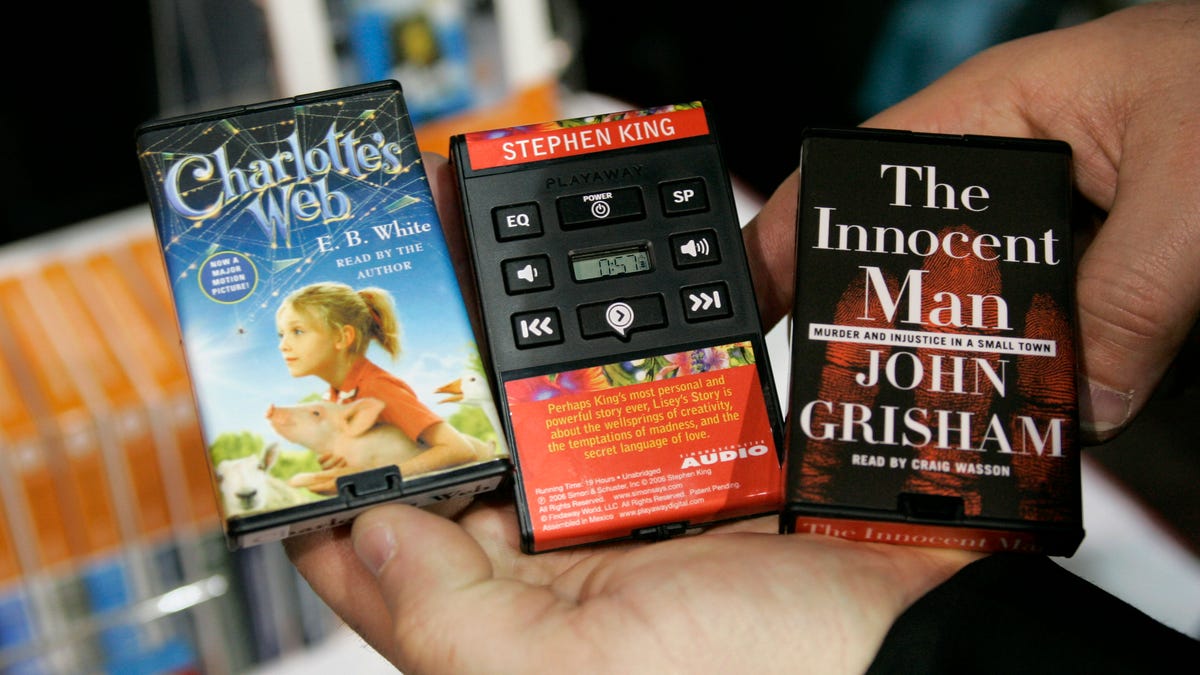Listen closely. Thomas Edison had a vision for audiobooks. In 1877, he invented the phonograph and tested it by reciting “Mary Had a Little Lamb.” Edison believed that the recorded form would be suitable for full-length books and that some books were meant to be heard rather than read. He wrote in the North American Review about the advantages of audiobooks over printed books. However, it took a century for the audiobook industry to emerge.
Today, audiobooks are a billion-dollar industry, embraced by readers as a normalized way to consume books. In 2022, they generated $1.8 billion in revenue in the US alone, with double-digit growth over the past decade. Major publishers and tech giants like Amazon, Apple, Google, and Spotify have invested heavily in the audiobook business.
Audiobooks are versatile, enriching, transformative, and, most importantly, fun. So, let go of any prejudice and give audiobooks a chance. Put on your headphones, take a walk, and immerse yourself in a great story.
By the numbers:
– Global audiobook revenue in 2022: $5.3 billion
– Projected global audiobook revenue in 2030: $35 billion
– 57% of audiobook listeners are between the ages of 18 and 44
– 49% of the US population is between the ages of 18 and 44
– Playback speed range in the Libby app: 0.60-3.00x
– You can read 100 books in a year with the help of audiobooks
Origin story:
In 1975, Duvall Hecht, a former Olympic gold medalist in rowing, was frustrated with his long commutes. He discovered recordings of books made for blind people and decided to create his own audiobooks. He started with George Plimpton’s “Paper Lion” and went on to establish Books on Tape, which became a pioneer in the field. Hecht eventually sold the company to Random House for $20 million in 2001.
Explain it like I’m 5:
Some people claim that audiobooks don’t count as reading, but that’s not true. Throughout history, reading aloud and listening to others read aloud has been a natural way for us to enjoy stories. While there may not be much academic research comparing audiobooks to print books in terms of comprehension, studies have shown that audiobooks are beneficial for language learners, struggling readers, and younger readers.
Enter Spotify:
If you’re listening to an audiobook, chances are you’re using Amazon’s Audible platform. However, Spotify has also entered the audiobook market. After a clash with Apple over in-app purchase fees, Spotify now allows subscribers to listen to 20 hours of audiobooks per month. This move gives Spotify time to figure out the best way to engage subscribers without losing significant profits to Apple. For those on a budget, local libraries often offer apps like Libby that provide free access to audiobooks.
Brief history:
– In 1883, Evert Nymanover proposed a machine that could read books aloud from inside a hat.
– In 1923, Frank L. Dyer patented the “talking machine record,” which had applications for the blind.
– The US Congress passed the Pratt-Smoot Act in 1931, providing funding for a program called Books for the Adult Blind.
– In 1952, the audio publisher Caedmon released Dylan Thomas’s “A Child’s Christmas in Wales,” considered the first audiobook.
– Audible was founded in 1995 and introduced the Audible MobilePlayer in 2008. Amazon acquired Audible for $300 million.
Fun fact:
Apple recently introduced a suite of AI-narrated audiobooks. While this sparked controversy, it also signaled a more cost-effective way to meet the expected increase in audiobook demand. However, critics argue that the narrators are what make a great audiobook truly exceptional.
Pop quiz:
Factory workers in the past often had books read aloud to them, inspiring products named after characters or authors from great books. Which type of factory was known for this practice?
A. French shoes
B. Portuguese cork
C. Cuban cigars
Quotable:
“We will lose something very stirring in the American tradition when we walk upstairs to find our kids listening to Mark Twain on headsets.” – Jonathan Kozol, author of “Illiterate America”
Poll:
Have you ever felt that something meaningful was lost when your kids listened to audiobooks instead of reading print books?
A. No, I was thrilled to see them engaged with literature.
B. Yes, they got grounded for a month for defying the sanctity of printed books.
C. LOL, you meant Minecraft, right?
Let’s talk!
In our last poll about margin calls, 57% of respondents said the riskiest thing they’ve done is buying a house with a 7% interest rate, 10% said it was investing heavily in meme stocks, and 32% said it was giving themselves bangs despite the risks involved.
Tweet this!
What did you think of today’s email?
What should we obsess over next?
This email was written by Scott Nover, edited by Susan Howson, and produced by Annaliese Griffin. The correct answer to the pop quiz is C., Cuban cigars. Factory workers in cigar factories would have books read aloud to them by a lector.
Denial of responsibility! Vigour Times is an automatic aggregator of Global media. In each content, the hyperlink to the primary source is specified. All trademarks belong to their rightful owners, and all materials to their authors. For any complaint, please reach us at – [email protected]. We will take necessary action within 24 hours.


